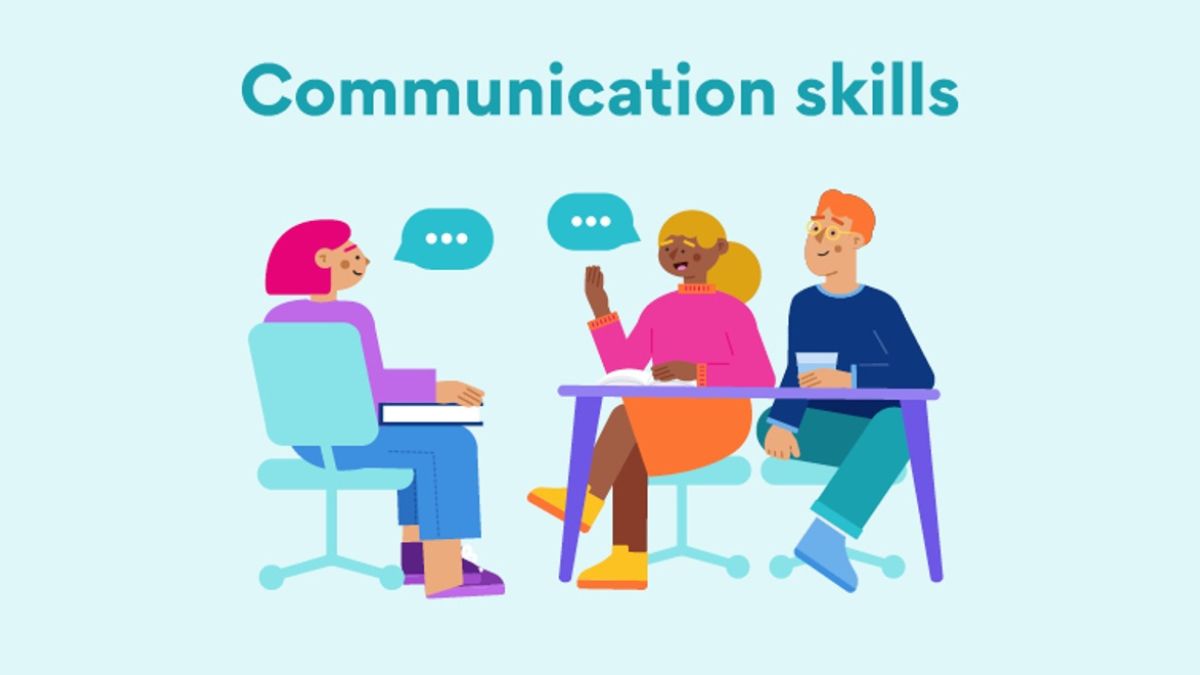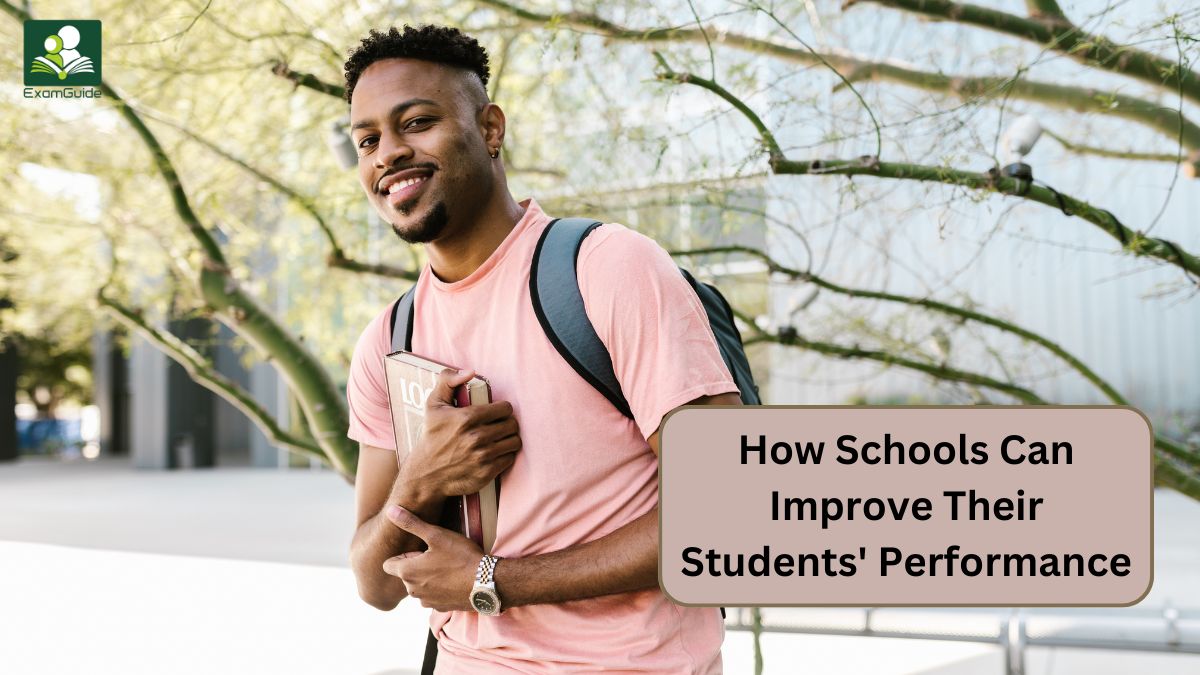
How Schools Can Improve Their Students' Performance
Improving student performance is a top priority for educational institutions worldwide. In Nigeria, as in many other countries, schools face various challenges such as inadequate resources, overcrowded classrooms, and insufficient teacher training, which can affect student outcomes.
However, there are practical strategies that schools can implement to significantly boost the academic performance and overall development of their students.
This article explores effective ways schools can enhance student performance by focusing on several key areas.
Table of Content
7 Best Strategies Schools Can Implement to Improve Students’ Performance
How Can Teachers Improve Student Performance?
What Role Do Parents Play in their Child’s Academic Performance?
How Can Schools Support Students Who are Struggling Academically?
How Can Schools Ensure Continuous Improvement in Student Performance?
7 Best Strategies Schools Can Implement to Improve Students’ Performance
1. Investing in Teacher Quality
Teachers are the most important influence on student success. Schools can improve student performance by:
- Providing Professional Development: Regular teacher training and workshops ensure that educators are up-to-date on the latest teaching methods, technological tools, and subject knowledge. This allows them to deliver lessons more effectively and engage students.
- Hiring Qualified Teachers: Schools should prioritize hiring well-trained, certified teachers who are passionate about education. Quality teachers not only impart knowledge but also inspire and motivate students to excel.
- Monitoring and Evaluation: Continuous teacher evaluations through classroom observations, student feedback, and performance reviews can help identify areas of improvement for educators. Schools can then offer targeted support or training where necessary.
2. Curriculum Development and Innovation
A well-designed curriculum can significantly impact student learning and performance. To improve outcomes, schools should:
- Review and Update the Curriculum Regularly: The educational curriculum should be relevant, challenging, and aligned with the needs of today’s world. Schools should incorporate modern topics such as digital literacy, financial education, and critical thinking into their curriculum.
- Implement Differentiated Learning: Not all students learn at the same pace or in the same way. Schools should adopt differentiated teaching methods that cater to various learning styles, such as visual, auditory, and kinesthetic learners. Providing individualized support can help struggling students keep up and excel.
- Focus on Core Subjects: While a well-rounded education is important, schools should ensure that students receive strong instruction in core subjects such as math, science, reading, and writing. These foundational skills are essential for future academic and career success.
3. Incorporating Technology into the Classroom
Technology can revolutionize the way students learn and improve academic outcomes by:
- Using Educational Tools and Software: Schools can enhance learning by integrating interactive learning tools, such as educational apps, simulations, and online resources. These tools make learning more engaging and allow students to explore topics in greater depth.
- Facilitating E-Learning: Schools can adopt blended learning models, which combine traditional classroom teaching with online courses or modules. This allows students to learn at their own pace and access a broader range of educational materials.
- Providing Access to Devices: Schools should ensure that students have access to computers, tablets, or other digital devices to enhance their learning experience. Technology can make research and homework easier, as well as improve digital literacy—a critical skill in today’s job market.
4. Promoting Parental Involvement
Parental involvement plays a crucial role in student performance. Schools can encourage better student outcomes by:
- Engaging Parents: Regular parent-teacher meetings, progress reports, and open lines of communication can help parents stay informed about their child’s academic progress. Schools should involve parents in school activities and encourage them to support learning at home.
- Providing Workshops for Parents: Schools can offer workshops that help parents understand how to assist with homework, manage their child's study time, and create a conducive learning environment at home. When parents actively participate in their child’s education, students are more likely to succeed.
- Setting Clear Expectations: Schools can work with parents to set high academic expectations and establish consistent study routines at home. This collaboration ensures that students receive support both at school and at home.
5. Creating a Positive Learning Environment
The school environment has a direct impact on students' ability to focus and perform well. Schools can foster a conducive learning atmosphere by:
- Maintaining Safe and Clean Facilities: A well-maintained school with clean classrooms, proper lighting, and comfortable furniture helps students concentrate better. Schools should also ensure that playgrounds and sports facilities are available for physical activities.
- Encouraging Discipline and Structure: Implementing clear rules and a structured schedule helps maintain order and allows students to stay focused on their studies. Schools should promote positive behavior and discourage distractions, such as excessive use of phones in class.
- Addressing Mental Health Needs: Schools should be sensitive to students' emotional and mental health needs. Offering counseling services, mentorship programs, and stress management workshops can help students deal with academic pressures and personal issues.
6. Providing Extracurricular Activities
Extracurricular activities can have a positive impact on student performance by:
- Developing Skills Beyond the Classroom: Activities such as sports, arts, debate clubs, and leadership programs allow students to develop skills like teamwork, communication, and critical thinking, which can enhance their academic performance.
- Promoting Physical and Mental Well-being: Physical activities like sports help students stay healthy and relieve stress, leading to better concentration and academic success.
- Fostering Creativity and Innovation: Encouraging students to participate in creative activities like drama, music, or coding clubs can stimulate their intellectual curiosity and improve their problem-solving abilities.
7. Tracking and Rewarding Student Progress
Schools can improve student performance by monitoring academic progress and providing rewards for achievement:
- Setting Academic Goals: Teachers should set clear, measurable academic goals for students and track their progress regularly. This allows both students and teachers to identify areas for improvement.
- Recognizing Achievements: Schools can motivate students by recognizing their achievements through awards, certificates, or praise. Celebrating academic success encourages students to keep striving for excellence.
- Providing Additional Support: For students who struggle academically, schools should offer extra help through tutoring, remedial classes, or peer mentoring programs. Early intervention is key to preventing students from falling behind.
How Can Teachers Improve Student Performance?
Teachers can improve student performance by adopting several effective strategies:
- Professional Development: Attending regular workshops and training keeps teachers updated on new teaching methods, technologies, and educational trends. This helps them deliver lessons more effectively and engage students in innovative ways.
- Differentiated Instruction: Teachers can use a variety of teaching methods to cater to different learning styles (visual, auditory, kinesthetic). This ensures that all students, regardless of their learning preferences, are able to grasp the material.
- Personalized Attention: Offering one-on-one support to students who are struggling or need extra help can significantly boost their understanding and performance. This may include extra tutoring sessions or tailored assignments.
- Clear Learning Goals: Setting clear, achievable goals for students and tracking their progress regularly helps them stay focused and motivated. Providing feedback and celebrating small victories can also boost confidence and performance.
- Use of Technology: Incorporating technology into lessons, such as interactive tools, multimedia presentations, and online resources, makes learning more engaging and helps students grasp complex concepts more easily.
- Encouraging Active Participation: Teachers can foster an interactive classroom environment where students are encouraged to ask questions, participate in discussions, and collaborate with their peers. This promotes critical thinking and better comprehension.
- Regular Assessment and Feedback: Conducting frequent assessments helps teachers gauge student understanding and identify areas that need improvement. Providing timely and constructive feedback guides students on how to improve and stay on track.
What Role Do Parents Play in their Child’s Academic Performance?
Parents play a crucial role in their child's academic performance by providing support, guidance, and a conducive environment for learning. Here are some key ways parents can influence their child's success:
- Creating a Learning Environment: Parents can establish a quiet, organized space at home dedicated to studying. A well-structured environment helps children focus on their schoolwork and build consistent study habits.
- Setting Academic Expectations: When parents set clear, realistic academic goals and expectations, it encourages students to strive for success. Parental expectations help children understand the importance of education and motivate them to perform well.
- Monitoring Academic Progress: Parents can stay involved by regularly checking their child’s progress, reviewing report cards, and discussing performance with teachers. This allows parents to identify areas where their child may need extra help or improvement.
- Supporting Homework and Study Time: Parents who assist with homework, provide learning materials, and guide their children in organizing study schedules help reinforce what is taught in school, improving comprehension and retention.
- Encouraging a Positive Attitude Toward Learning: Showing enthusiasm for education and encouraging curiosity helps children develop a love for learning. When parents praise effort rather than just results, it fosters resilience and a growth mindset.
- Involvement in School Activities: Attending parent-teacher meetings, volunteering at school events, or participating in school decision-making processes helps parents stay engaged in their child’s education. This involvement shows children that education is a shared priority.
- Promoting Healthy Habits: Parents play a role in ensuring their children get enough sleep, eat nutritious meals, and engage in physical activities. Healthy habits contribute to better concentration, memory, and overall academic performance.
How Can Schools Support Students Who are Struggling Academically?
Schools can support students who are struggling academically by providing:
- Extra Tutoring: Offering one-on-one or group tutoring sessions to help students catch up on difficult subjects.
- Remedial Classes: Implementing remedial programs to focus on specific areas where students are falling behind.
- Personalized Learning Plans: Creating individualized learning strategies tailored to the student's needs and pace.
- Peer Mentoring: Pairing struggling students with higher-performing peers for guidance and academic support.
- Regular Feedback: Providing timely feedback and progress reports to help students improve in key areas.
- Parental Involvement: Engaging parents to ensure they are aware of their child’s challenges and can support learning at home.
How Can Schools Ensure Continuous Improvement in Student Performance?
Schools can ensure continuous improvement in student performance by implementing the following strategies:
- Ongoing Teacher Training: Regular professional development for teachers keeps them updated on the latest educational methods, ensuring effective teaching practices that benefit students.
- Curriculum Review and Update: Frequently reviewing and updating the curriculum to align with current educational standards and student needs helps maintain a relevant and challenging learning environment.
- Data-Driven Assessments: Regularly assessing student performance through tests, assignments, and feedback helps identify areas where improvement is needed. Schools can use this data to adjust teaching methods or provide additional support to struggling students.
- Parental Engagement: Encouraging strong parent-school communication ensures that parents are involved in their child’s learning process. Schools can collaborate with parents to support students' academic goals.
- Student-Centered Learning: Adopting teaching strategies that cater to different learning styles and offering personalized support helps meet individual student needs and fosters continuous academic growth.
- Technology Integration: Using educational technology enhances student engagement, allows for more personalized learning experiences, and helps track progress more effectively.
- Setting Clear Goals: Establishing measurable academic goals for both teachers and students creates focus and accountability. Regular progress reviews keep the school on track toward continuous improvement.
Conclusion
Improving student performance requires a complex approach that involves the active participation of teachers, parents, and school administrators. By investing in teacher quality, updating curricula, integrating technology, encouraging parental involvement, and promoting a positive learning environment, schools can create the ideal conditions for students to thrive.
When these strategies are implemented effectively, schools will see significant improvements in their student's academic achievements, preparing them for future success both in higher education and in their careers.
No comment found
Related Posts
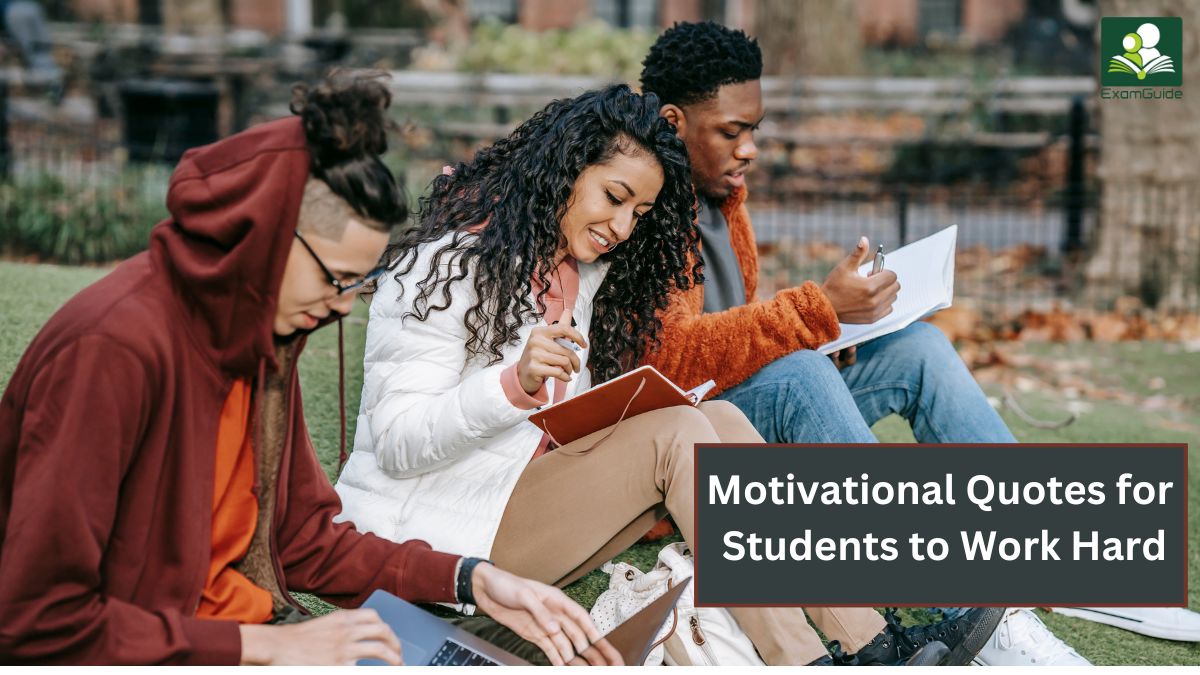
Top 20 Motivational Quotes for Students to Work Hard
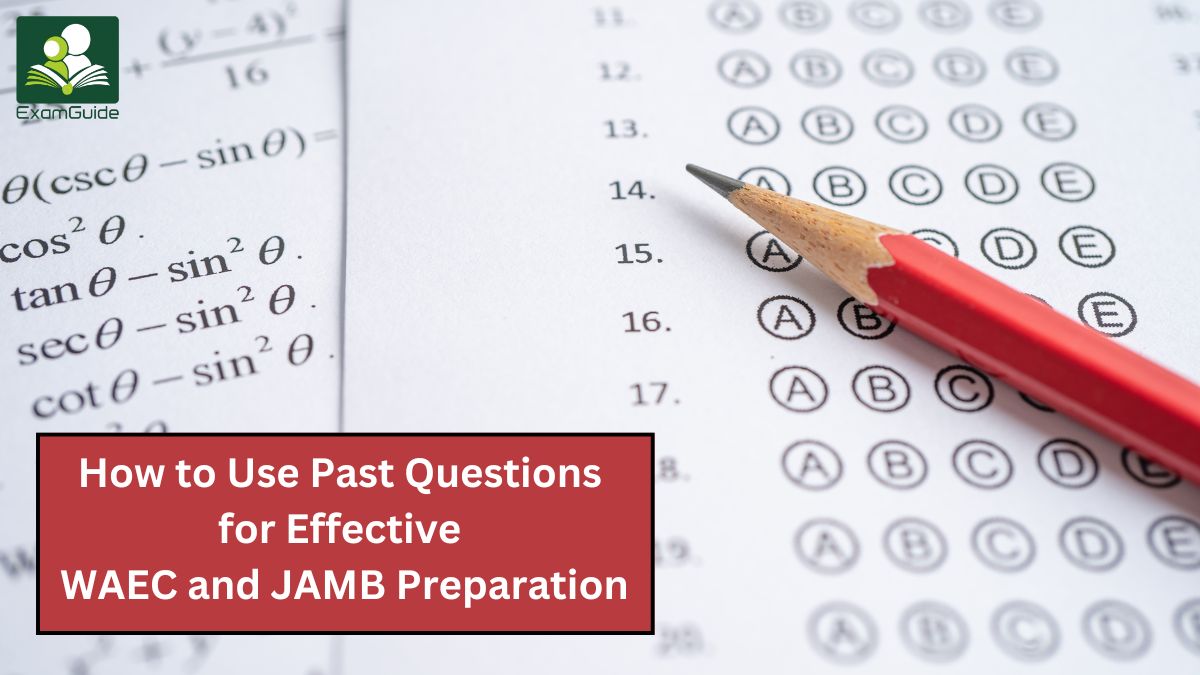
How to Use Past Questions for Effective WAEC and JAMB Preparation

Language barriers in Nigerian Education and how to Overcome them

How to Excel in Mathematics: Tips for Nigerian Students
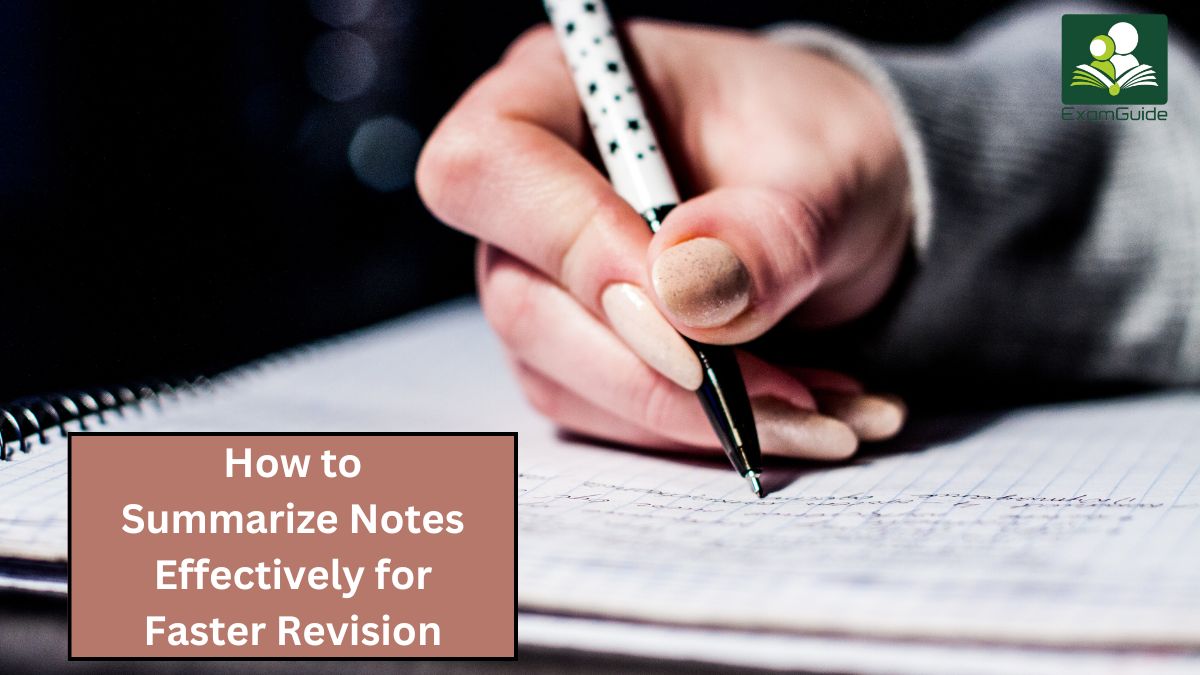
How to Summarize Notes Effectively for Faster Revision
